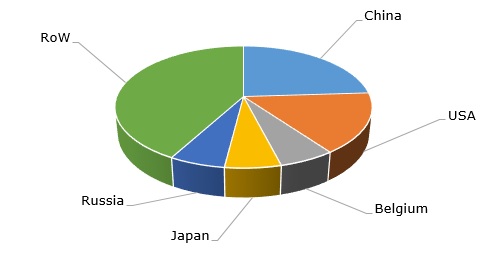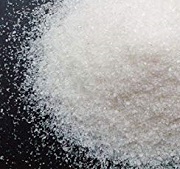The global ammonium sulphate market is rather stable, which is substantiated by ample supply, wide geographic diversification of production capacity and strong demand for this type of fertilizers based on its properties. Today ammonium sulphate is one of the most popular and accessible nitrogenous and sulphuric fertilizers, which also safeguards its consistent applicability, buoyed by the growing population and rising consumption of agricultural products. Soils with sulphur deficit, as well as specific crops in particular geographic regions with certain tillage practices, are particularly compatible with this fertilizer. Of course, the general picture of the market is complex, affected by multiple factors, viewed as both barriers and enablers. For instance, supply could easily tighten or loosen subject to demand, seasonality of agricultural periods, weather conditions, import/export regulations and force majeure circumstances at major production entities.
The first quarter of 2019 was rather favourable for the market with ample supply from South East Asia (a number one region with respect to ammonium sulphate production. Traditionally, large amounts of ammonium sulphate are being shipped to Latin America and specifically to Brazil. Brazil’s ammonium sulphate imports rose from 1.9 million tonnes in 2017 to 2.32 million tonnes in 2018, which is an impressive growth rate. Similar and fairly high growth rates of ammonium sulphate import to Brazil are witnessed in Q1 2019.
Ammonium sulphate: structure of the global production by country

The Russian ammonium sulphate sector is also ready to increase export volumes as the spring fertilizer application season rapidly approaches to an end. The Russian ammonium sulphate production accounts for about 6% of the global market. The country has over 1.5 million tonnes in ammonium sulphate capacity, which is represented by such heavyweights as Kuibyshevazot, Kemerovo Azot, Shchekinoazot, and Evraz (though the main capacity of the latter is located in India).
However, large increases in nitrogenous fertilizer application, which should positively affect the market, might have its negative effects through delayed complex feedbacks with adverse influence. This adverse influence is in a gradual depletion of organic nitrogen is soils, which may have a detrimental impact in terms of overall sustainability. Thus, excessive use of fertilizers in the desire to meet the current demand for agricultural products may unbalance the whole fertilizer market by decreasing overall soil productivity and agricultural efficiency.
More information on the global ammonium sulphate market can be found in the in-demand research study “Ammonium Sulphate: 2019 World Market Outlook and Forecast up to 2028”.
